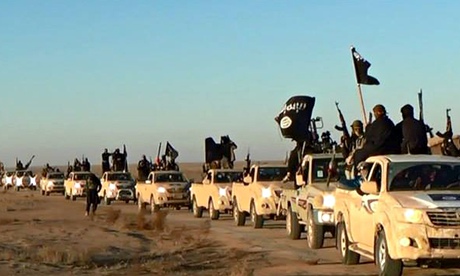With the increase in terrorists attacks across the world leading to massive destruction of lives and properties, the question asked is how these terrorists have been able to pull off these in spite of very tight gun/weapon controls in some of these countries.
The United States of America is daily battling with controlling the usage of guns by citizens whereby a gun-wielding individual will simply cock his gun and massacre as many people as he can. It’s an open secret that known and suspected terrorists are allowed to purchase firearms under federal laws in the United States.
In a report by the Washington Post, the question asked is how the terrorists who attacked Paris on Friday got their weapons despite France strict gun laws. In the report, it’s said they may have turned to black market sources. How ‘successful’ is the black market? How poorly controlled can the black market be?
Given France’s strict gun laws, the terrorists who attacked Paris on Friday may have turned to black market sources for the weapons they used. But in the United States, known and suspected terrorists are allowed to purchase firearms under federal law.
“Membership in a terrorist organization does not prohibit a person from possessing firearms or explosives under current federal law,” the Government Accountability Office concluded in 2010. The law prohibits felons, fugitives, drug addicts and domestic abusers from purchasing a firearm in the United States. But people on the FBI’s consolidated terrorist watchlist — typically placed there when there is “reasonable suspicion” that they are a known or suspected terrorist — can freely purchase handguns or assault-style rifles.
And, as the GAO found, a number of them do: Between 2004 and 2014, suspected terrorists attempted to purchase guns from American dealers at least 2,233 times. And in 2,043 of those cases — 91 percent of the time — they succeeded. There are about 700,000 people on the watch-list — a point that civil libertarians have made to underscore that many on the list may be family members or acquaintances of people with potential terrorist connections.
That total number is a floor, since the 2011 and 2012 numbers include only partial data because of a programming error that the FBI subsequently fixed, according to the GAO. Overall, looking back toward 2007, the annual number of attempted gun purchases by terror suspects has generally held steady and may be declining slightly year-over-year.
Lawmakers have tried to stop this from happening. Bills have been introduced in Congress to do just that, going as far back as 2007 at the behest of then-Attorney General Alberto Gonzales.
Sen. Dianne Feinstein (D-Calif.) and Rep. Peter T. King (R-N.Y.) introduced a bill to do that earlier this year. The “Denying Firearms and Explosives to Dangerous Terrorists Act of 2015” would prevent several hundred gun purchases by suspected terrorists each year, and it includes provisions to let people challenge a denial if they believe they were placed on the watchlist in error.
But these bills have rarely made it out of committee, in part due to vehement opposition from the National Rifle Association and its allies in Congress. The NRA objected to earlier versions of the bill, saying they were “aimed primarily at law-abiding American gun owners,” that “prohibiting the possession of firearms doesn’t stop criminals from illegally acquiring them,” and that the bills were “sponsored by gun control extremists.”
I reached out to the NRA to find out if they were similarly opposed to this year’s Feinstein/King bill but they have not yet responded. This piece will be updated if they do. A 2012 survey conducted by conservative pollster Frank Luntz, for pro-gun-control group Everytown USA, found that 76 percent of American gun owners, including 71 percent of NRA members, supported prohibiting people on the terror watchlist from buying guns.
The biggest knock against the proposed legislation is perhaps that the FBI’s watchlist is an imperfect tool for assessing an individual’s terror threat. Civil libertarians warn that the watchlist has ballooned in size to nearly 700,000 individuals in recent years. Many of those people may simply be family members, acquaintances or people only marginally acquainted with individuals who actually belong to terror groups. The NRA and its allies are worried that perfectly law-abiding people may end up on a watchlist and be unable to purchase a gun.

